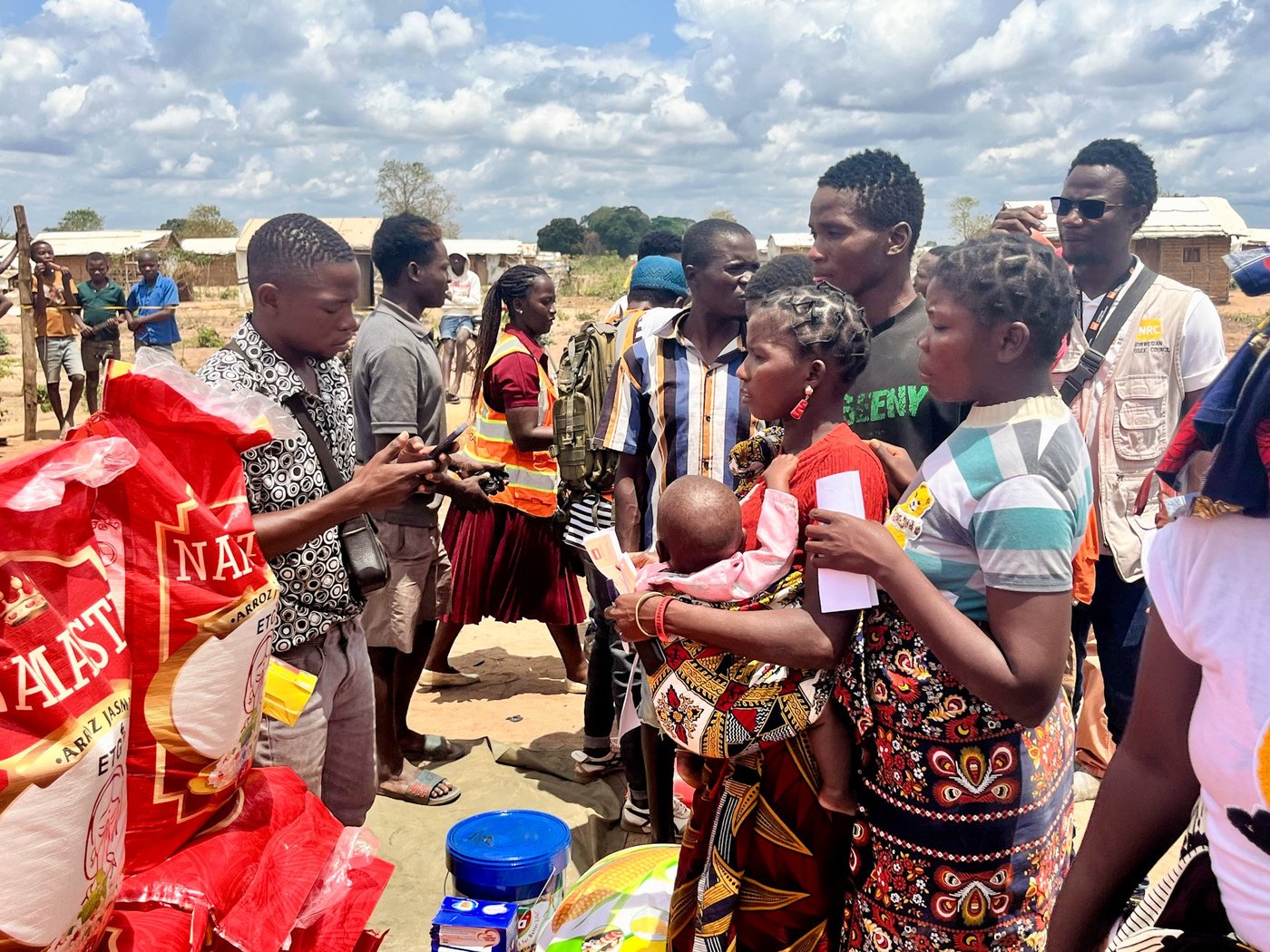The pace of new arrivals is relentless
In Mueda alone, the Norwegian Refugee Council (NRC) has recorded 1,767 families arriving in the past couple of weeks, while 595 families have been counted in Nangade district, and 334 in Montepuez.
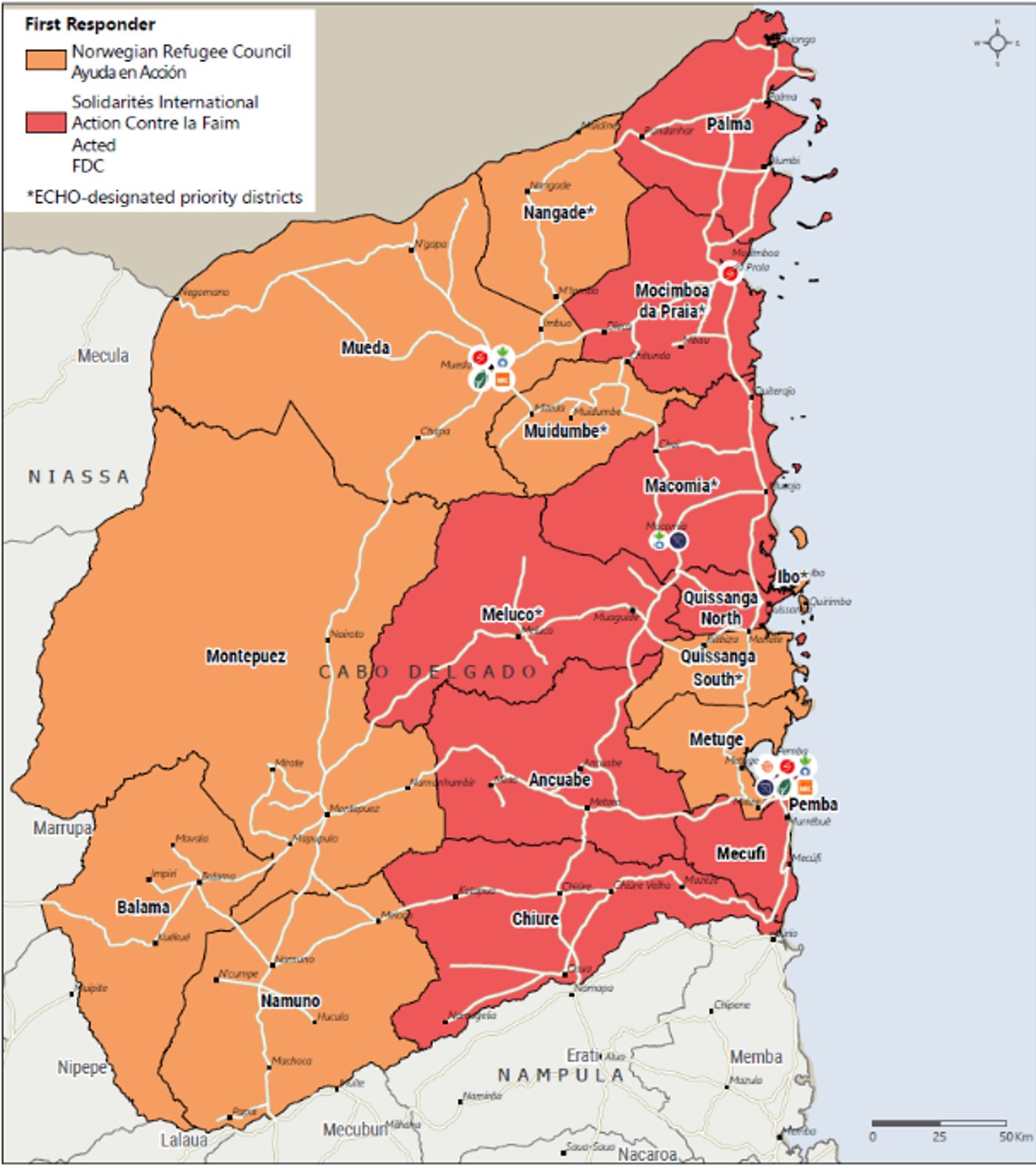
Since last week, 171 new families reached the Mpembe site for internally displaced people in Mueda. NRC teams assisted 47 newly arrived families that Tuesday morning. By the end of the distribution, another 49 had arrived. 75 new ones had arrived by Thursday morning.
At the Eduardo Mondlane site, located closer to the heart of Mueda town, around 220 families have arrived in recent days, with more arriving daily. 322 additional families arrived at the site between Tuesday and Thursday alone.
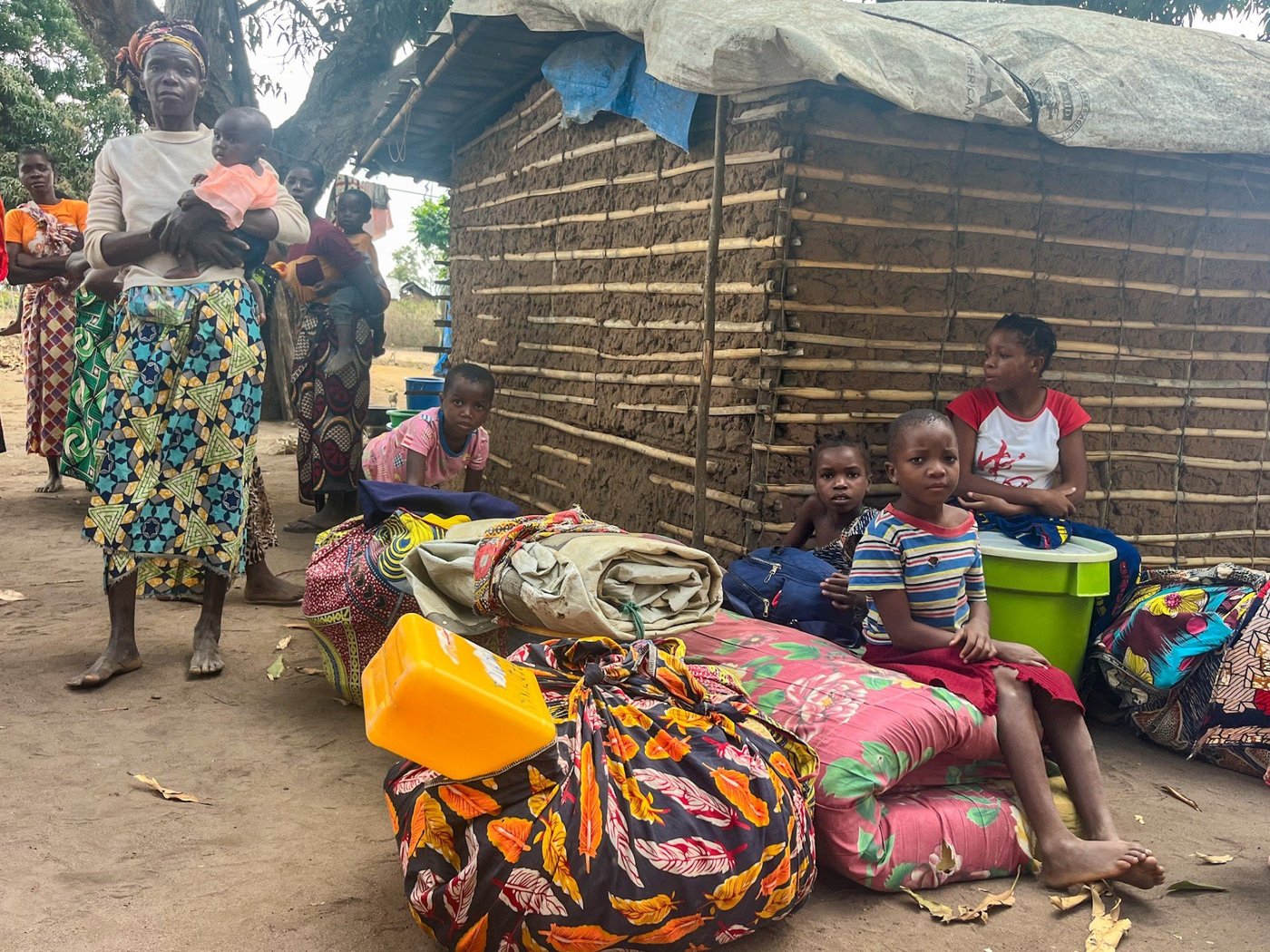
At the Mpembe site, a group of women sit with infants asleep against their shoulders. The women fled their neighbourhood in Mocímboa da Praia after renewed attacks and arrived at the site that morning.
This is not the first time they have been forced to flee. In 2022, after attacks in Mocímboa, they fled to Montepuez, a city further south, and later managed to return home. But this time, the cost of transport has made it impossible.
“It’s 300 meticais [5 US dollars] per person to get on the truck,” one woman explained. “For our family, that meant 1,700 meticais. We could only get as far as Mpembe.”
Temporary shelters for new arrivals
The site in Mpembe has no designated transit shelters. On arrival, families must look for abandoned shelters that have been left behind by other displaced families who have either returned, moved to other sites, or joined relatives in host communities. These shelters are often in poor condition, but they are the only immediate option.
A few kilometres away in Lyanda, Thomas shows the small space his family occupies inside the transit shelter built in 2022. Smoke curls up from a cooking fire set between two wooden beds, some clothes, and a few pots. On the floor, Thomas keeps rice bags and buckets which he purchased that morning through NRC’s voucher assistance.

Thomas fled Mocímboa da Praia after it was attacked two weeks ago. He left with his wife and three children. When the armed groups arrived, he and his family immediately ran into the bush, hoping to stay hidden until the area was clear.
After a few hours, he returned to assess the situation and gather a few belongings. He then realised his next-door neighbour had been decapitated outside his home. “They chose my neighbour’s house randomly,” he says. “It could have been us.”
After that, the family decided to leave for good and travelled by car directly to the site in Lyanda.
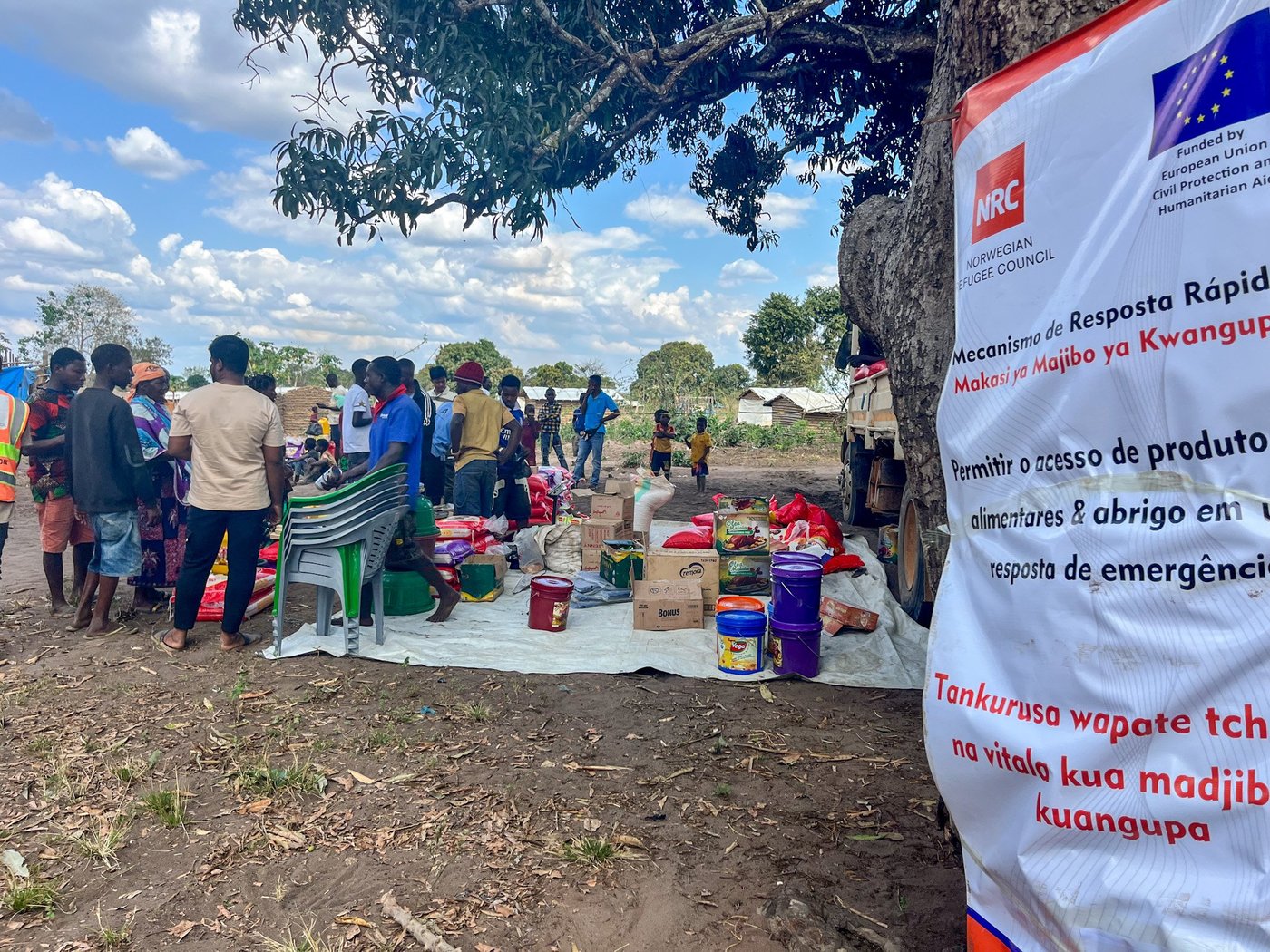
NRC’s teams are on the ground
In partnership with Ayuda en Acción and EU Humanitarian Aid, NRC is distributing vouchers to newly arrived families. Worth 6,500 meticais (approximately 100 US dollars), the vouchers are designed to help people survive the first two weeks of displacement. In addition, NRC is bringing vetted local suppliers to the site, so families don’t have to walk for miles to the nearest store or pay for transport. The voucher system restores choice and dignity. Instead of receiving a fixed kit, families decide what is most important to them at that time, whether it be tarpaulins and torches, soap, buckets and jerrycans, plastic chairs, rice, beans, cooking oil, tomato paste, or diapers. In parallel, AeA protection staff identify protection cases who may need additional assistance, such as psychological first aid, referrals and financial support for transportation to reach nearest hospitals or other services.
As arrivals continue, registration and distribution teams work in parallel. Right now, they are targeting emergency assistance to approximately 3,260 families.

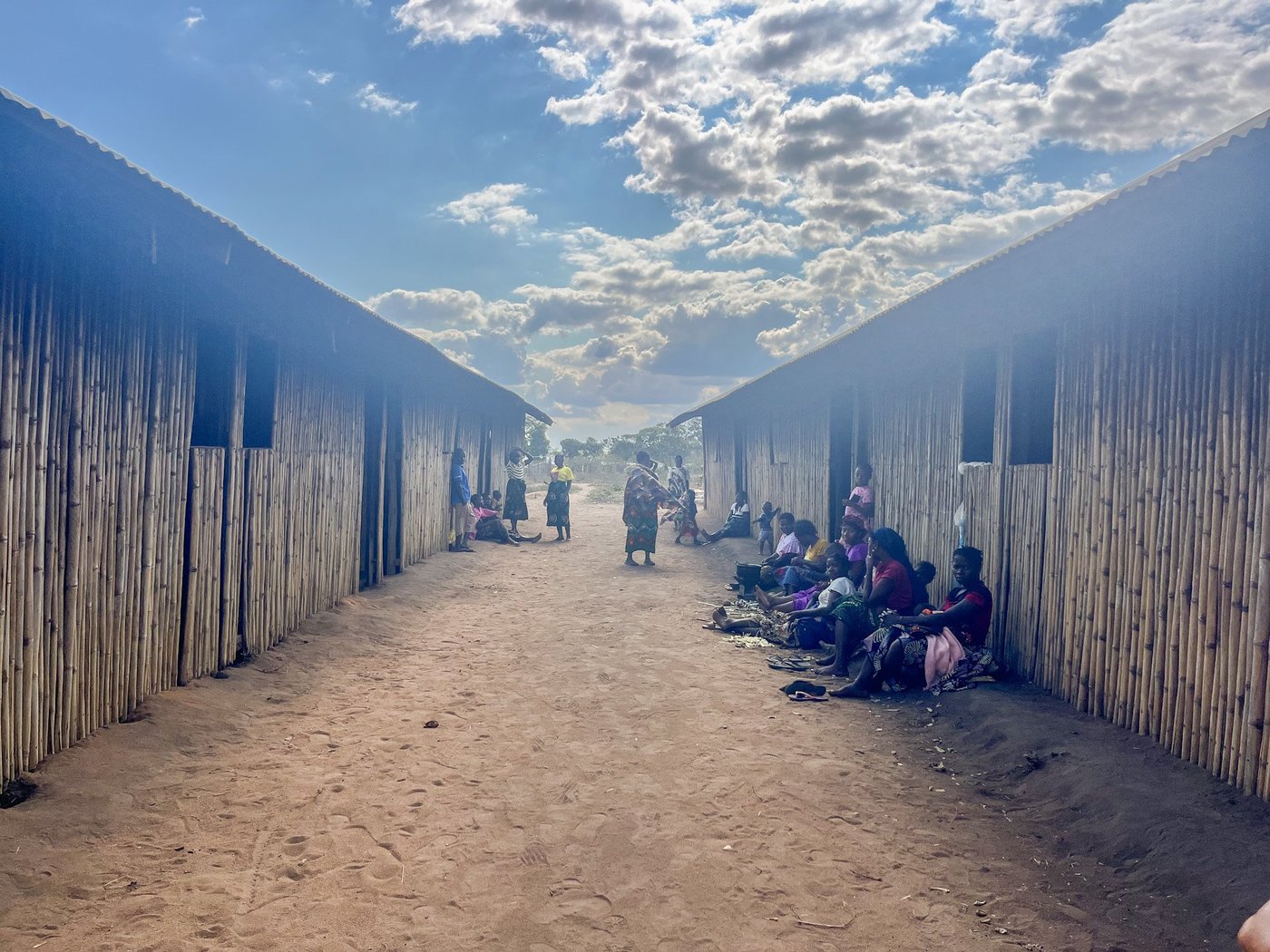
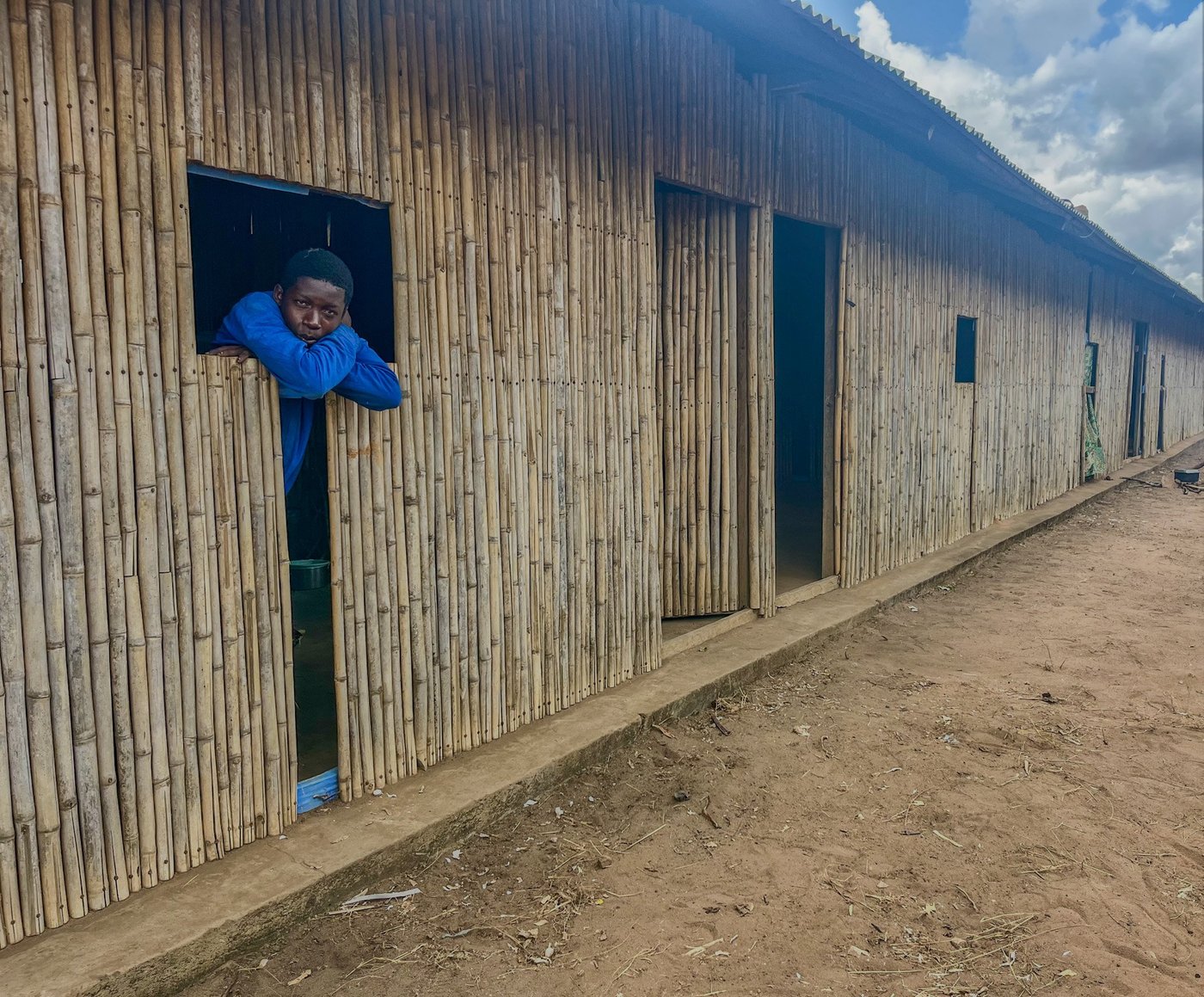
Lack of basic services in the displacement sites
In the transit site, Lazarro* shows us the large bags of rice he has bought from the vendors’ stalls.
“I walked for four days with my wife and three children, and we sheltered in villages along the way until we reached Lyanda. It was important for me to carry my children’s schoolbooks. They were doing well in school back home and I want them to continue learning no matter what.”
However, there are no schools in Lyanda, and humanitarian organisations have lost the funding to be able to provide any educational activities. This is a loss for parents who wanted to prioritise learning even while fleeing.
Health services are also lacking for these displaced communities. The host communities here are themselves families that have been displaced for a long time and now support the new arrivals with what little they have.
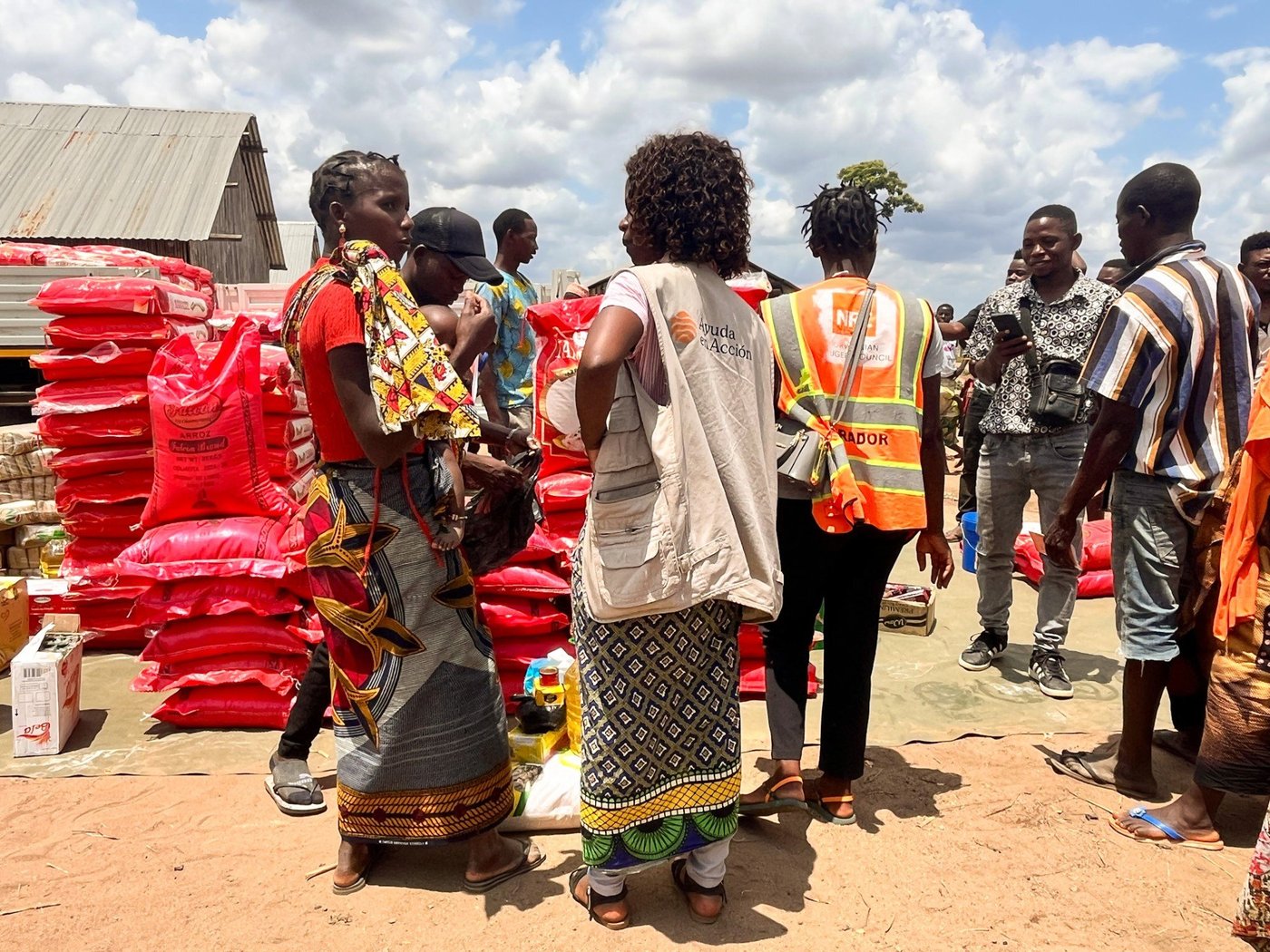
Mozambique suffers from crisis after crisis
These latest displacements and coordinated attacks across several districts come against a backdrop of rising violence in Cabo Delgado. The area has faced ongoing hostilities since 2017, as well as recurring environmental shocks, including cyclones Chido, Dikeledi and Jude as recently as last March.
With funding cuts and heightened insecurity, humanitarian organisations on the frontline are being forced to make hard choices about how to allocate aid. NRC has identified Mozambique as being one of the world’s most neglected displacement crises this year. That’s why stronger international support is crucial to keep providing life-saving aid in today’s increasingly challenging conditions.
* Names have been changed to protect the person’s identity.
Sign up to our newsletter to read more stories from around the world.
Mozambique is one of the world’s most neglected displacement crises. It may not make the headlines, but the needs are urgent. Share this story and help shine a light on the world's neglected displacement crises. Your voice matters when others remain silent.


